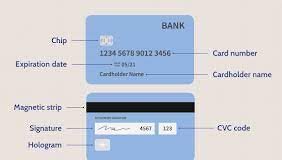It’s important to know the difference between your credit score and your credit report. Your credit score is based on the items found on your credit report, similar to how grades are based on homework and class assignments. Here are four things that you might think matter – but don’t– and five that really do. Improving your credit score starts with understanding how all of the pieces work together and continues with building a plan to improve your credit.
Simply, a credit score is an indicator of how responsibly you handle your credit. Several factors impact your credit score, and you might be surprised what financial behaviors and information actually make a difference. First, it’s important to know the difference between your credit score and your credit report. Your credit score is based on the items found on your credit report, similar to how grades are based on homework and class assignments. Here are four things that you might think matter – but don’t– and five that really do.
Employment history: Credit agencies might track your employment, but that information does not affect your credit score. Whether or not you have a job may affect your ability to obtain credit (such as a loan or credit card), but it’s not part of what determines the number. Savings account balance: Your credit score is based solely on your credit history. Your bank account balance is not a part of your credit history.








